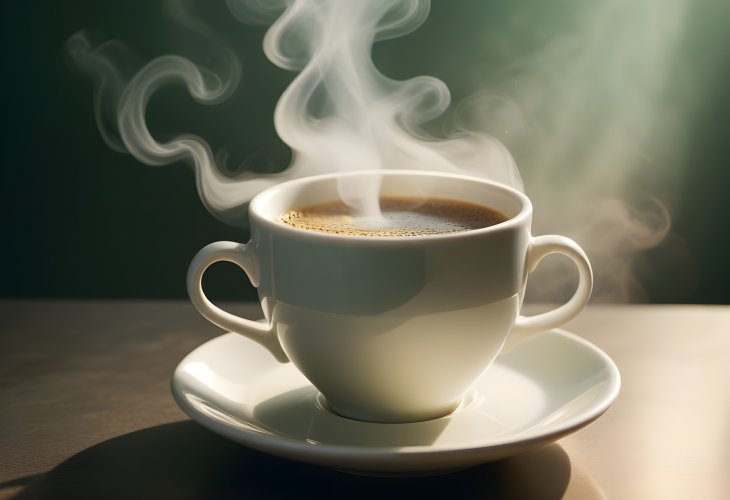History and Archaeology
From Controversy to Coffee: How Judaism Warmed Up to the World’s Favorite Drink
Once viewed with suspicion by rabbis and rulers alike, coffee’s journey from exotic curiosity to kosher classic reveals how Jewish law embraces new trends with wisdom and balance

Today, coffee feels so natural, so essential, that we rarely stop to think about it. Each morning, we make our cup — each person in their own way — in half a minute, and the day begins. From there, how often we refill depends mostly on how boring our job is.
Three hundred years ago, nothing about coffee was obvious.
When Water Was Dangerous and Wine Was a Problem
In the past, when people were thirsty, they drank water — but not the clean, filtered water we know today. Water came from wells, cisterns, or rain barrels, and it was often unsafe.
Historian John McManners describes drinking water in 18th-century Paris: “The water was polluted... Complaints were common about flax residue floating in it, or foam from oxen’s mouths rising in the buckets brought for household use. In villages without wells, water was collected from shallow pits and had to be strained through cloth. Any Parisian who knew where his drinking water came from would restrict himself to wine alone.”
Wine brought its own problems related to intoxication, poverty, and social unrest. Taverns where wine or ale were sold gained a bad reputation, and for good reason. The poor drank dirty water; the wealthy kept wine at home; and ordinary folk visited taverns for a drink and a fight.
Then, coffee came on the scene.
Coffee Arrives in Europe: Excitement and Suspicion
Coffee was seen as mysterious and powerful — even medicinal. Its rich aroma filled the narrow streets of 18th-century Europe as small cafés began to open everywhere.
At the same time, authorities — both civic and religious, grew concerned. Were coffeehouses just taverns in disguise? Would this new drink encourage gambling, quarrels, or moral decline?
No one yet knew what coffee really was. Some praised it as a health drink; others feared it. Alongside chocolate and tea, it raised new questions about foreign stimulants and their effects.
Coffee, Cocoa, and the Rabbis
The great sage Rabbi Yaakov Emden (the Ya’avetz) lived during this time and recorded an incident from 1750: A severe illness struck his household. He and his wife both fell gravely ill, and rumors spread that they were near death. A doctor visited and prescribed a spoonful of wine for the rabbi and a spoonful of cocoa for his wife.
Rabbi Emden recovered — but the cocoa, he wrote, nearly killed his wife: “It was clear beyond doubt that this cocoa caused the relapse and her sudden illness.”
By divine mercy, she recovered — but he remained wary of “the new drink.”
Tea, too, was new to Europe, though it had been known in China for centuries. Rabbi Emden experimented with all of these beverages and finally concluded: “In drinking tea I found rest and comfort for my soul; it gladdened my heart as though I drank fine wine.”
Jews and the Birth of the Café
As in many fields, the Jews were early adopters. The first coffeehouse in England was opened by Jews. In Germany, Jewish traders popularized coffee so successfully that merchants in Frankfurt launched a propaganda campaign to exclude them from the market and keep it for “good Germans.”
One early critic, David Lis, described coffee as “smelling of earth and rotten leaves,” wondering how anyone could desire such a disgusting thing. (Apparently, even in the 1700s people said, “It’s an acquired taste.”)
A Rabbi in a Coffeehouse
Rabbi Emden recounts in his memoirs that during one of his trips to England, he sat down in a coffeehouse to rest. A Jewish man from the London community saw him and publicly protested, saying it was unbefitting for a rabbi to drink coffee in a public café!
The man, unaware he was addressing one of the great sages of the generation, later spread rumors that Rabbi Emden “spent his time in coffeehouses.”
In his writings, Rabbi Emden explains that he did not respond or leave because he didn’t want to embarrass the coffeehouse owner — which might have caused people to think the place was forbidden. Soon after, he was even asked a halachic question: was it kosher to drink coffee in a coffeehouse?
Coffee in Jewish Law
Rabbi Yaakov Reischer of Prague, author of Shevut Yaakov, was asked whether a gentile could prepare coffee for a Jew on Shabbat under emergency conditions. He replied: “Coffee — a recent innovation, cannot be considered a necessity.”
He also discussed coffee and tea in the laws of Passover, blessings, and Bishul Akum (food cooked by non-Jews), noting: “The early authorities did not mention these drinks because they were unknown in their lands; they are newly arrived from the land of Turkey.”
From Controversy to Halachic Clarity
Over time, the Jewish world learned to understand coffee — to use it wisely, to regulate its preparation, and to include it in halachic discussion.
Today, Jewish law addresses every detail of coffee:
Kashrut (which additives or flavorings are permissible)
Passover (checking for chametz contamination)
Shabbat (how to brew or reheat it)
Bishul Akum (who may prepare it)
What began as a foreign curiosity has become a daily ritual — and even a mitzvah enhancer, keeping us awake for Torah study and prayer.
So next time you sip your morning coffee, remember that this humble drink once stirred debates among rabbis, philosophers, and kings — and today, it simply helps us start the day.

